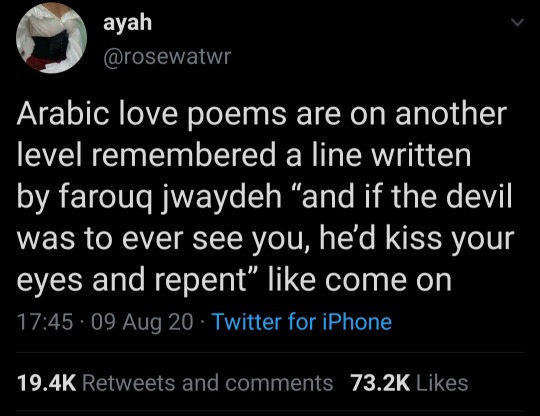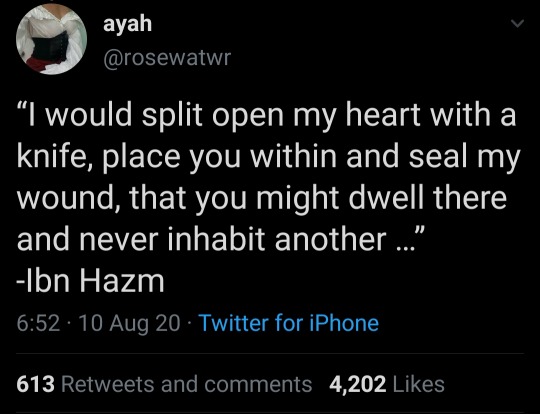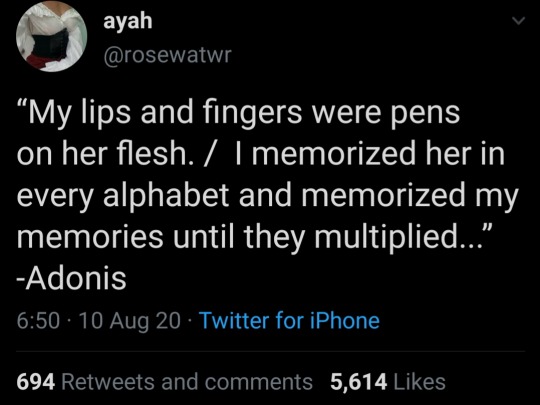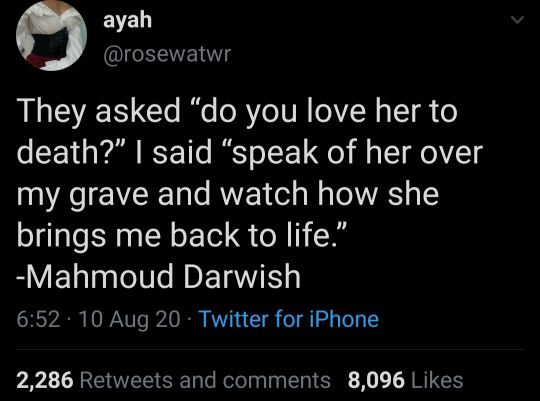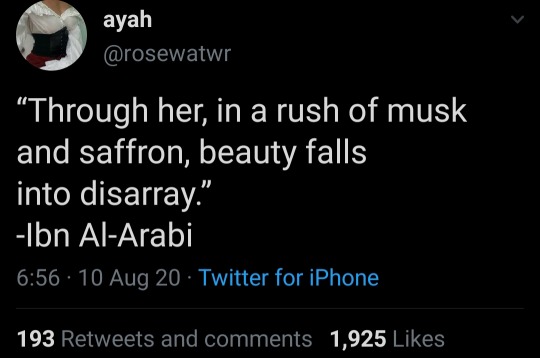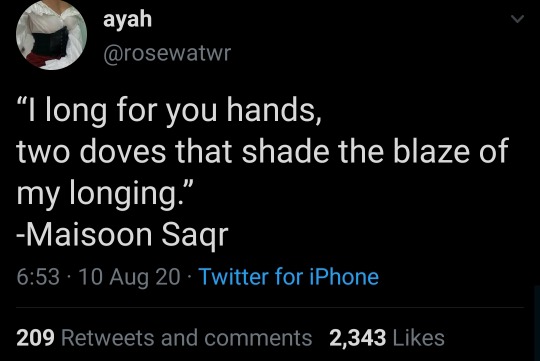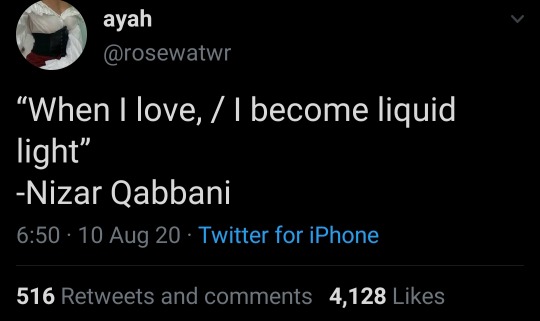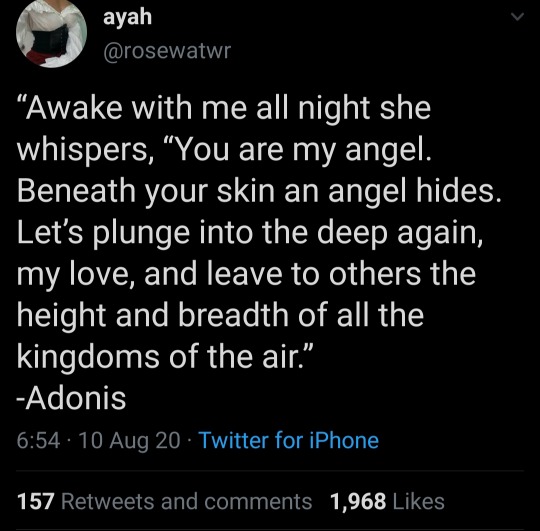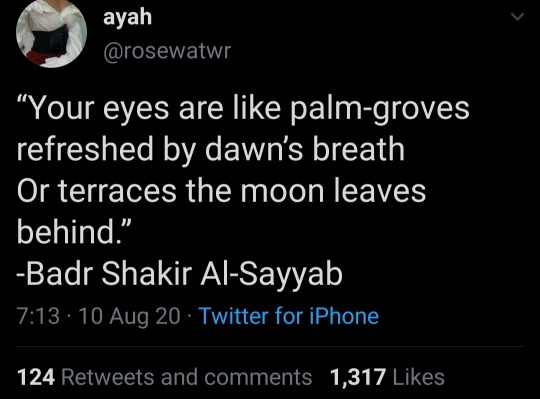Text
WEBSITES FOR WRITERS {masterpost}
E.A. Deverell - FREE worksheets (characters, world building, narrator, etc.) and paid courses;
Hiveword - Helps to research any topic to write about (has other resources, too);
BetaBooks - Share your draft with your beta reader (can be more than one), and see where they stopped reading, their comments, etc.;
Charlotte Dillon - Research links;
Writing realistic injuries - The title is pretty self-explanatory: while writing about an injury, take a look at this useful website;
One Stop for Writers - You guys... this website has literally everything we need: a) Description thesaurus collection, b) Character builder, c) Story maps, d) Scene maps & timelines, e) World building surveys, f) Worksheets, f) Tutorials, and much more! Although it has a paid plan ($90/year | $50/6 months | $9/month), you can still get a 2-week FREE trial;
One Stop for Writers Roadmap - It has many tips for you, divided into three different topics: a) How to plan a story, b) How to write a story, c) How to revise a story. The best thing about this? It's FREE!
Story Structure Database - The Story Structure Database is an archive of books and movies, recording all their major plot points;
National Centre for Writing - FREE worksheets and writing courses. Has also paid courses;
Penguin Random House - Has some writing contests and great opportunities;
Crime Reads - Get inspired before writing a crime scene;
The Creative Academy for Writers - "Writers helping writers along every step of the path to publication." It's FREE and has ZOOM writing rooms;
Reedsy - "A trusted place to learn how to successfully publish your book" It has many tips, and tools (generators), contests, prompts lists, etc. FREE;
QueryTracker - Find agents for your books (personally, I've never used this before, but I thought I should feature it here);
Pacemaker - Track your goals (example: Write 50K words - then, everytime you write, you track the number of the words, and it will make a graphic for you with your progress). It's FREE but has a paid plan;
Save the Cat! - The blog of the most known storytelling method. You can find posts, sheets, a software (student discount - 70%), and other things;
I hope this is helpful for you!
(Also, check my blog if you want to!)
75K notes
·
View notes
Text
Writing mistakes that editors will call you out for!
Disclaimer: this is a harsh and mean informative post on mistakes that make your writing amateurish or fanfiction-like. In the professional world, editors will call you out on them in a much harsher way that here.. but hey, they’re easy to fix! Of course, the quality of writing is often a matter of individual taste and experience, though there is a theory to it and ways to make your work clear and interesting to your readers.
And yes, as cruel as it sounds to admit—most fanfiction writers are amateurs who will not help you improve your own writing. You might have to close your Good Omens AO3 fanfic for a few hours to read the actual work by Neil Gaiman. That said, fanfiction is an amazing gateway to becoming a pro author because it gives you insight on what the audience likes, and the practice you need to improve! There are many fanfiction writers who’ve taken the time to learn from professionals about their craft, and are in a place where they could become successful published authors themselves.
That aside, here are 7 writing mistakes that hinder your writing!
1 – Dialogue tags
This is BY FAR the most common mistake that amateur writers do, and particularly prelevant in fanfiction. Alternative dialogue tags (whisper, shout, murmured) should be used VERY sparingly. “said”, “replied”, and “asked” should build up the majority of the tags you use.
Oftentimes, the reader will understand the tone based on what the character says or by their actions.
2 - Tense changes
Pick a tense and stick to it. Many times, amateurs waver between past and present which leads to awkward reading. Choose which tense you prefer and stick to it. An extra caution should be taken when using past tense, however, to correctly use past preterite (I ate) vs past perfect (I had eaten). While both can be used, they are different so make sure you understand when to use which.
3 – Pointless dialogue
It’s time to cut the small talk. While chitchat and banter may be fun to read, particularly in fanfiction, editors will ask that you remove it if it doesn’t advance the plot. What you want to do is cut down on the filler in your story, and if that means your characters NOT having an argument about macaroni cheese, then so be it. Save dialogue for important and meaningful conversation only—your readers will prefer it, I promise.
4 – Pointless description
Hand in hand with the previous point, description should be kept consise and relevant. We don’t need to know what your character is wearing or the details of their “black, leather, zebra-print sofa under the wide windowsill in the master bedroom”. Keep the descriptions short, fed into the plot little-by-little and relevant to what is happening. Your readers are smart—they can imagine the rest for themselves! That’s what makes reading fun!
5 – Use the character’s name
The blue-eyed boy has a name for the great purpose of you using it! Literal writing, nine times out of ten, is better! Green orbs are distracting, but green eyes are to the point and clear. It’s the same with names! The name, title, role (butler, governess etc), or pronouns should always be the default. Any other term should be used sparingly when there is no other alternative.
6 – Abandon the pet names
Yes, pet names are cute and fun, but not when they’re in every sentence of conversation. Things like “babe”, “baby”, “sugarpuff sunshine fairy” should be used SPARINGLY. I can assure you, the love interests saying it once or twice in the novel will have a far greater impact on the reader than if they say it every time they call their partner. An overuse of pet names becomes distracting and make the character seem both immature and a caricature. It also has a similar effet to repeating the other person’s name during a conversation—it leads to unnatural dialogue as we only really say the other person’s name to them in order to get their attention.
7 – Immature characters
This is a biiiiig one in fanfiction. You may see characters who are adults in their mid to late twenties but who still behave like teenagers. Granted, if you are a teenage writer, this can’t always be corrected, though it does become apparent to any reader over the age of eighteen.
Truth be told, adults mature and don’t react as overtly as many poorly-written characters do. A twenty-eight year old is very unlikely to tell two teenagers who are making out at the kitchen table to “get a room”, nor are they likely to be victim of some horrible miscommunication that leads to a lovers-to-enemies-to-lovers situation. Of course, it is still possible, though it does read as unrealistic and makes it apparent that the author has not yet reached the age of the character they are writing about. Take reference from real people around the age of your characters and if all else fails, you could always look for the possibility to age them down.
The point of correcting these mistakes is to create a novel that is easy to understand without the reader feeling as though they’re swimming through mud. Publishers look for clear, consise books that tell one story from start to finish!
Good luck!
6K notes
·
View notes
Photo
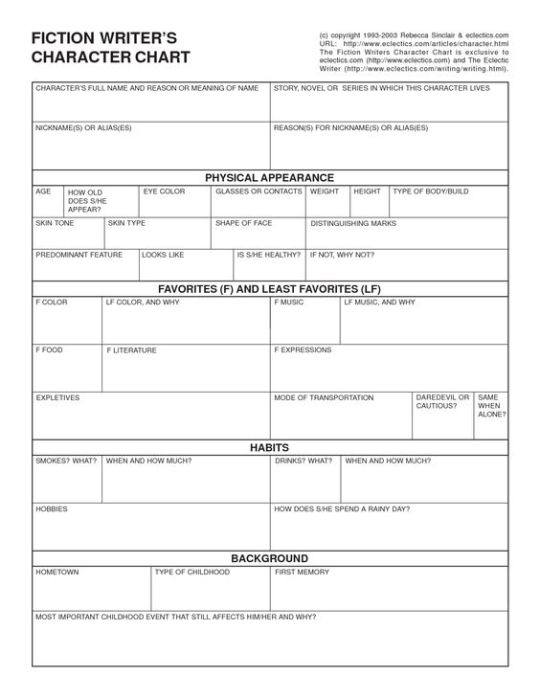
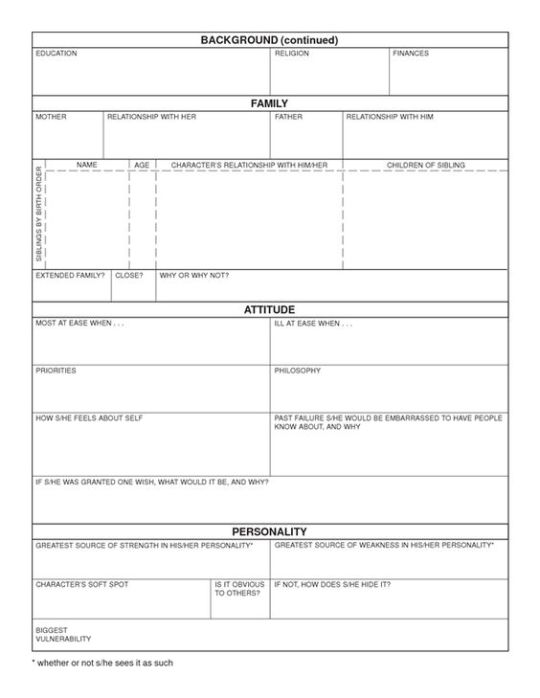

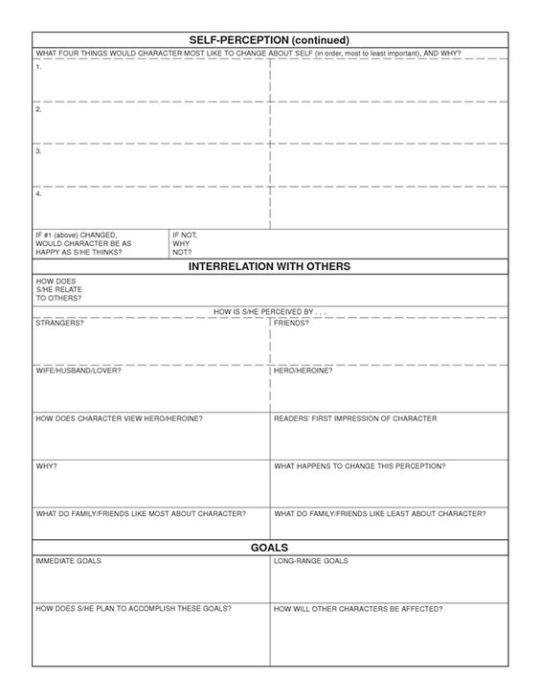
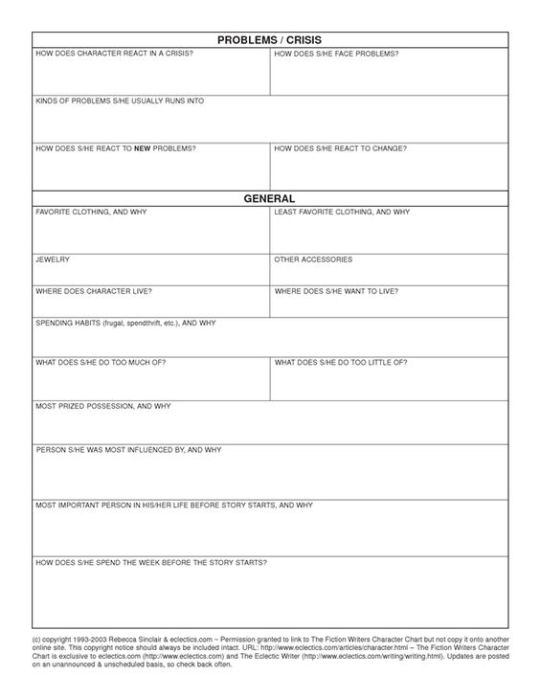
© (c ) copyright 1990-2011 Rebecca Sinclair
See the original HERE
133K notes
·
View notes
Text
Resources For Worldbuilding

Culture & Society
Creating Fictional Holidays
Music For Your Fantasy World
Creating Religions & Belief Systems
How to Design Your Diabolical Cult
Historically Accurate Sexism in Fantasy: Let’s Unpack That
Debate with the Squirrels: Sexism in Fantasy
Feudalism
Using Politics In Fantasy Fiction
Mythic Justice – Crime and Punishment in Your Fantasy World
Government Worldbuilding
Realistic Political Strife
A Politics Of Worldbuilding
Language
Creating a Language
The Language Construction Kit
The International Phonetic Alphabet – Audio Illustrations
Fantasy Name Generator
Geographic Names
Medieval Names Archive
Squid Name Generator
Model Languages
Xenolinguistics
History
Prehistory
Mythos
History
Today
Myths, Creatures, and Folklore
Encyclopedia Mythica
The Ancient History Encyclopedia
Using History as Inspiration for Fantasy
Victorian Era Family Day Life in England
Peasant Life in the Middle Ages
Everyday Life in the Middle Ages
English Monarchs
Feudal Japan
The Story and Structure of the Iroquois Confederacy
Science + Geography
Dimensions
Solar Bodies
Climatology
Planetary Geography
Water Geography
Cartography, Maps, Star Charts, and Writing
Fundamentals of Physical Geography
Dating of Middle-earth events, using Precession of the Equinoxes and Tidal Friction
Orbital Operations in Science Fiction
Planet Designer
Artificial gravity calculator
Natural gravity calculator
Selden’s Catalogs of Objects for Celestia
Medieval Technology
Defining the Source, Effects, and Cost of Magic
How to Create a Rational Magic System
Miscellaneous
/r/worldbuilding
Fantasy World Generator
SciFi World Generator
Focused Ambiguity: Using Metaphor in Fantasy Writing
Space Engine
Terragen
The Five foundations of Worldbuilding
Setting the Fantastic in the Everyday World
Support Wordsnstuff!
If you enjoy my blog and wish for it to continue being updated frequently and for me to continue putting my energy toward answering your questions, please consider Buying Me A Coffee.
Request Resources, Tips, Playlists, or Prompt Lists
Instagram // Twitter //Facebook //#wordsnstuff
FAQ //monthly writing challenges // Masterlist
16K notes
·
View notes
Text
my love you will forever have me floating
29 notes
·
View notes
Text
So... I found this and now it keeps coming to mind. You hear about "life-changing writing advice" all the time and usually its really not—but honestly this is it man.
I'm going to try it.

98K notes
·
View notes
Note
what are some good writing websites? i’m looking for articles and tips(kind of like tumblr blogs)
It’s been a few years since I followed writers outside of Tumblr, most of whom I found through Pinterest. Here’s a list of blogs/sites who got me through some rough creative patches, and others who I appreciated enough to share.
https://www.helpingwritersbecomeauthors.com/
https://www.well-storied.com/
https://www.mythcreants.com/
https://www.thecreativepenn.com/
https://www.bryndonovan.com/
https://wordsnstuffblog.com/
https://www.artofnarrative.com/
http://thequietwritersdesk.blogspot.com/
https://becomeawritertoday.com/
http://hannahheath-writer.blogspot.com/
http://writerssherparetreats.com/
https://www.jacquelyneubanks.com/
https://www.emwelsh.com/
http://www.writelyme.com/
https://raimeygallant.com/
https://www.hintofjam.com/category/writer/
There are also a few “writing help” sites towards the bottom of my “Sites to Post Your Writing” list:
http://absolutewrite.com/
https://www.writersdigest.com/
Since it has been a while since I followed these educators, I can’t recall their every opinion or advice. I hope you find some here whose advice really works for you and your writing.
2K notes
·
View notes
Text
Writing Advice Master List
Getting Started
Bad Habits of Beginning Writers Creating Writing Habits Prewriting 101 Returning to Old Works Setting Up Your Space Starting Again (if you’ve stopped) Where to Start Writing the Beginning Writing What You Don’t Know 5 Truths About Being A Writer
Career as a Writer
Making Money Writing for a Living
Characters:
Character Building Character Quirks Non-Binary Characters Religious Characters Writing A Hero Writing Non-Humans Writing Women 5 Ways to Name Your Character 5 More Ways to Name Your Character 7 Steps to Character Creation
Dialogue:
Dialogue Improving Dialogue: Eliminate Exposition
FanFiction
Fanfiction 101
NaNoWriMo
NaNoWriMo Tips & Tricks for NaNoWriMo 3 Tips for NaNo
Planning & Outlines
How to Start Outlining Is My Idea Good Enough? Research Should you Outline? 7 Things to Do Before You Start
Plot:
Details Fight Scenes Sequels Sex Scenes Sexual Assault in Literature Story Arcs
Poetry
Editing Poetry Reading Poetry 5 Quick Poetry Tips
Publishing:
Choosing a Title Rejection Letters Social Media When and Where to Publish
Romance:
LGB Relationships Romantic Subplots Writing a Romance Novel
Setting:
Description When Setting Really Matters
World Building:
Creating Another Species Creating World Maps World Building 101 World Building 201
Other
Editing Making Time to Write Point Of View Prologues Why I Write Writers Block Writing with Sound 5 Signs You Treat Your Reader Like an Idiot
11K notes
·
View notes
Photo


I wanted to double check that “The Cherry on Top” was a short novel or novella and I found this on uphillwriting.org. I think it’s very informative and hopefully you guys will find it useful!
74K notes
·
View notes
Photo

Cashapp $LanoraJo
Every little bit helps...please
Car died. Need the car to get to work, no bus line, COVID makes it impossible to get a ride. I have had pneumonia and we just need some help for the down payment. One source of income due to Covid. I have pneumonia. We pretty much are on our own. Cashapp $LanoraJo even if its 1 dollar. It adds up fast. Thank goodness I voted early because I would be walking in the cold to the polls. Important election.
7 notes
·
View notes
Text
Guide to Combining Genres

Patreon || Ko-Fi || Masterlist || Work In Progress
–
Pick Complementary Genres
It’s difficult to say which genres do and don’t mix well, as complementary characteristics are highly subjective, but some widely known combinations that you may consider are young adult x fantasy, paranormal x mystery, and action x dystopian. When splicing two difference categories of story telling, it’s important to pick based on which characteristics of each genre would make the most interesting tension and original approaches to age-old staples.
Consider Structure
When you combine two genres, you must take the readers’ expectations into account. If you’re combining fantasy, which is primarily either politically or adventure based, and splicing it with romance, which usually follows a linear, steadily building structure, you have to find a hybrid between these two genres in order to justify marketing it as a combination. When a reader signs up to read a fantasy romance, they want a blend, not one with the other drizzled on top.
Be Intentional, but Not Forceful
Don’t blend genres because you think it will magically make your story more interesting. If a genre doesn’t belong, the readers will notice that the characteristic elements of it are out of place and badly incorporated, like adding kale to a fruit smoothie. Everyone notices that it’s green, so you’re not fooling anyone, and yes, we can taste the kale.
Use the Characters As A Guide
The best way to figure out which genres have a place in your story is to use your characters as a makeshift arrow, using their flaws, motivations, and personal history to indicate which elements of other genres could easily incorporate into the existing narrative.
Tell Multiple Stories
The easiest way to make sure your genres mix well but remain intact is to feature different star genres in different plots within the overall narrative. Smaller conflicts can feature different thematic elements that stray outside the bounds of the focus genre.
Common Struggles
~ How do you combine conflicting expectations without making the audience feel cheated?… If there’s only 20% of your book that could fit into another sub-genre, it only deserves 20% of the attention in the marketing department. If it’s primarily a fantasy but you market it as a romance, there will be hell to pay. Try your best to be honest and advertise your story clearly, rather than trying to reach a wide audience by misrepresenting the contents of the story.
~ How would you combine two commonly combined together genres and not disappoint readers, while still making sure you have enough different stuff?… Identify cliches within those genres separately as well as in their combination, and avoid or adapt them to suit your vision to the best of your ability. If two elements from the genres are commonly featured when they’re combined, try your best to imagine how you could tweak it to suit your story in a more original and interesting way.
~ How do you decide which characteristics of each genre go well together?… When you combine two tropes, you usually do so with the intention of creating heightened tension, unique conflict, or exploring a new idea. When you approach the task of deciding what to include and what not to, try to do so from the angle of what you’re trying to accomplish, rather than the reaction you’re hoping to receive. The mindset you use when making these decisions makes all the difference in the final product.
Other Resources
Resources For Plot Development
Guide To Plot Development
Tackling Subplots
Plot Structures
A Guide To Tension & Suspense
Characters First, Story Second Method
Coming Up With “Original” Ideas
How To Turn A Good Idea Into A Good Story
31 Days of Plot Development : January 2019 Writing Challenge
Resources For Romance Writers
Guide To Writing Historical Fiction | Part II
Resources For Writing Science Fiction
Resources For Writing Dystopian/Post-Apocalyptic Stories
20 Mistakes To Avoid in Science Fiction
Resources For Fantasy/Mythology Writers
20 Mistakes To Avoid in Fantasy
Guide to Writing Fantasy
Resources For Crime/Mystery/Thriller Writers
Tips For Horror Writers
Tips on Writing Pyschological Thrillers
10 Mistakes to Avoid in Horror
–
Masterlist | WIP Blog
If you enjoy my blog and wish for it to continue being updated frequently and for me to continue putting my energy toward answering your questions, please consider Buying Me A Coffee, or pledging your support on Patreon, where I offer early access and exclusive benefits for only $5/month.
Shoutout to my $15+ patrons, Jade Ashley and Douglas S.!
789 notes
·
View notes
Photo

Saw this on Facebook, but I have greater reach hear
35K notes
·
View notes
Photo

Not every writer wants to post their work online, however there are positives to doing so. If you seek feedback and advice from readers and writers, you might consider posting a draft or two. Even a few chapters or a poem can be uploaded online to get a little audience feedback.
Here are writing sites I’ve explored along with brief reviews of my experience in using them:
Fictionpress & Fanfiction.net Neither site allows you to remove reviews, delete your account, or budges an inch about harassment reports. This attracts many trolls, spammers, and critics who feel you’re entitled to their extremely negative opinions of your work. I don’t want young or amateur writers going through that, and the rest of us don’t deserve harassment either. There are wonderful readers and writers on both sites, but overall it’s an unsafe environment I can no longer recommend (further info).
A decent alternative to FF.net is Fictionpad. It’s a smaller site with fewer fandoms, but it’s easier to use and the admins were nice when I last tried it.
Archive Of Our Own (AO3) | Fanfiction only** | No covers — Invite only, but getting in isn’t hard. High viewership, well organized, and ad-free. Some written feedback, especially if you ask for some, but the “kudos” button is open to the public so anyone can leave their mark of approval. You can also set individual stories to “users only” along with other useful privacy options.
Crossover friendly, so you can finally post that multi-fandom fic and tag each property for search. Ships, subject material, and trigger warnings are also taggable for search (or to weed out in the case of tws). Lets you group individual stories into a series, and has various features for sharing/gifting your work with others. Overall the best place for fanfiction, hands down. — Adult Material Allowed
Major Demographics: Female, All ages.
Popular Genres: smut, epic dramas, fluff/angst, whump
Wattpad | Original & fan fiction | Covers Req. — Wattpad has been steadily improving its features and policies in the five years I’ve been using it. Here, some writers receive tons of feedback and appreciation, but most receive very little. A few authors have gotten published thanks to this site, others have followers in the hundreds of thousands, and still others become site administrators to support the bustling community.
They’ve recently rebranded, and have also introduced a feature to earn writers money. It is currently in beta and being tested with select authors only.
Unlike other sites, this one has very clear international groups and a high ethnic diversity among its writers. There’s an emphasis on supporting foreign authors and their stories in any language. Contests are set up by the site, but also smaller niche ones can be run by individual users.
It’s very fun to use and if the site chooses to feature one of your works you can get a lot of traffic. For the most part however, you have to practice marketing yourself, and/or develop a group of writer friends and read/promote each other’s work. — Adult Material allowed, but along strict guidelines (lots of kids use this site!).
Major Demographics: Female, Teens.
Popular Genres: romance, young adult, supernatural, celeb fic, fantasy
Royal Road | Original & fan fiction | Covers Opt. — This was suggested in the replies, so I did some research. Haven’t used it myself, looks nice, but here are the main points interested writers should know:
Site does not claim ownership of your work, copyright stays with you.
Popular stories receive much feedback and viewership in the millions.
You cannot remove reviews on your own stories, and you must submit a ticket to remove your story or delete your account.
From their FAQ: “All new submissions are manually checked for appropriate tagging and plagiarism, so expect it to take 12-24 hrs for a submission to be approved.” Also, stories with low-quality spelling and grammar will be removed by moderators.
Keeping a steady update schedule of “polished” drafts seems to be mandatory, and reviewers sound entitled.
One-shots seem to be out of the question, this is a site for novels.
Premium and free options exist for both readers and writers.
Site is affilated with Amazon, has been running for six years, and is based in Israel.
Fantasy, supernatural, epic dramas.
Adult Material Allowed
Smashbook, Livejournal, Inkspired, and Booknet are sites I am aware of, but have too little knowledge of to review. Likewise Wordpress, Blogger, or right here on Tumblr you can regularly post stories or novels and receive feedback. However, for those sites you do have to figure out a blogging system for yourself.
While researching good sites for this post, I found this user’s comments insightful. She suggested Writer’s Digest and Absolute Write as good places to seek professional feedback on your work. They don’t appear to be sites where you post work, but rather they provide tips and resources to help improve your work.
There are dozens of other places online where you can post your original fiction, non-fiction, and fan fiction. Things to keep in mind when site shopping:
READ THEIR SUBMISSION POLICIES & GUIDELINES FIRST
Search for reviews of the site by individuals who’ve actually used the site and are not affilated with the site.
See what the site’s policy is on deleting works & accounts. You don’t want to get your name and work trapped on a site with a bad reputation.
If “popular” stories have very little feedback on them, this means the majority of stories on that site get none.
If most users haven’t updated in months/years, this means the site is practically dead and may soon shut down. RED FLAG: the site does not date anything.
If the “feedback” on users’ pages and stories are “Like my work!” or “Read for read?” and other self-promotional messages, don’t sign up.
If a site looks cool to you but you’re still unsure, make an account with a junk email and post something you don’t care too much about just to test the waters. Good/bad doesn’t matter much right now, what’s important is figuring out how traffic works and what readers there are interested in.
Sites to AVOID due to spam, scams, and shifty behavior:
Inkitt—spam/shifty; claims it’s the #1 site for online publishing, but this is misleading. Their idea of getting users is to send copy/paste “invitations” to pre-existing online accounts (often dead accounts), and lie about how good one’s writing is even though they’ve never read it. Signing up with them also gets you endless emails about their pathetic contests.
Dreame/Ficfun—spam/scam; similar deceptive invitation tactic, except they are relentless (they’ve “invited” me five six TEN times on two different sites). Their gimmick is to offer you pennies for 5yr rights to your work (and their site is trashy with very little reader feedback). Both are owned by their Singaporean parent company Stary PTE Ltd. (who personally sent me my 5th “invite”).
+ If you have a question, please review my Ask Policy before sending in your ask. Thank you!
+ If you benefit from my updates and replies, please consider sending a little thank you and Buy Me A Coffee!
+ HEY, Writers! other social media: Wattpad - AO3 - Pinterest - Goodreads
—
*Based on what I see as receiving the most traffic and feedback on each site. These are not accurate statistics, merely observations.
** “Is AO3 really just for fanfic?” (tl;dr—YES)
9K notes
·
View notes
Text
*always adding more
General Writing Tips, Guides and Advice
How to be Confident in Your Writing
Start Your Novel Already!
Why First Chapters Matter
How to Outline a Novel
Incorporating Flashbacks
Word Building 101
Common Mistakes in Writing
Tips on Getting Started
What Not to Do
7 Tips to Become a Better Writer from Stephen King
How to Use Reading to Become a Better Writer
Why Writers Must Read
How to Finish What You Start: A Five-Step Plan for Writers
31 Ways to Find Inspiration for Your Writing
10 Tips to Write Fanfiction
Writing a Blurb
10 Writing Tips
Perfecting Description
Point of View
Speed Up Your Writing
Recieving Bad News
Useful Writing Apps
Avoiding Clichés
Writing Lessons
Finding Inspiration
Plot and Conflict
What is Conflict?
Where’s Your Conflict?
Adding Conflict to Your Scenes
Guides for Using Inner Conflict That Makes Sense
Plotting Your Novel
Internal and External Conflict
The Top Ten Plotting Problems
The Elements of Plot Development
Plot Help
Writing a Plot Your Own Way
Plot Development
Develop a Plot
Tension and Conflict
Your Plot, Step by Step
Plot vs. Exposition
Plot and Conflict
Character Development
How to Describe the Body Shape of Female Characters
Character Apperance Help
Words to Describe Voice
Body Language Cheat Sheet
Character Development Exercises
101 Character Development Questions
Art of Character Development
Introducing Characters
Characters You Need to Reinvent
Making Characters Likeable
Heros and Villains
Describing Clothing
Understanding Body Language
100 Positive Traits
Mental Illness in Writing
Conflicts and Characters
Indifferent, Distant Characters
Bitchy Characters
Describing Voice
Being a Bitch
Heartless Bitch
Writing Nice Characters
Character Questionnaire
Mental Disorders
Writing Characters with Mental Illness
Writing Male Characters
Playing Male Characters
Breaking Sterotypes
Characters with Glasses
Rebellious Characters
Writing Female Characters
Writing Intriuging Male and Female Characters
Spelling, Punctuation and Grammar
Placement of Speech Tags
Grammar and Spelling
Grammar Slammer!
American vs. British Grammar
HyperGrammar
Grammar Girl
Punctuating Dialogue
How to Use the Semicolon
Introduction to the Basic Rules of Punctuation
Comma 101
All About Dialouge
11 Grammar Tips
Comma Usage
Correct Use of Apostrophe
Proofreading
Transition Words
40+ Tips to Improve your Grammar and Punctuation
Better Writing: Grammar & Spelling
Semicolons and Colons
Underlining and Italicizing
Dashes and Parentheses
Hyphens
Apostrophes
The Ellipsis
List of 1000+ Adjectives
All About Names
List of Names
100 Most Popular Names
Sci-Fi Names
Sci-Fi Names Part 2
Name Berry
Behind the Name
Fantasy Name Generator
20,000+ Names From Around the World
Victorian Era Names
How to Choose a Name
Naming Your Characters
Give Your Character the Perfect Name
Name that Character!
10 Tips to Name Your Character
Genre Based
20 Tips to Writing Love Scenes
On Love And Sex
All That Sex!
Writing “Real” Men in Romance Fiction
Kissing
How to Write a Kissing Scene: Valentine Edition
How to Write a Kiss? And Should You Write Sex?
The Keys to Conflict
Writing Gender-Specific Dialouge
Things Smut Writers Should Know
How to Write a Sex Scene
3 Secrets to Writing Sex
Writing Love Scenes
Why You Should Write Love Stories
How to Write Horror
Horror Sub-Genres
Horror Plot Cliches
25 Things You Should Know About Writing Horror
Plot and Character in Horror Fiction
7 Laws of Comedy
5 Secrets for Improving Comedy Writing
How to Break into Comedy
How to Be Funny
Mystery Writing Lessons
10 Rules for Mystery
Mystery Writing
Other
Word Count
Story Starters & idea Generators
Fifty Quick Writing Prompts
Write or Die
Writing Prompt Generator
Dictionary.com
Thesaurus.com
Oxford Dictionary
Spanish Dictionary
Medical Dictionary
Your Dictionary
A Bunch of Character Questionnaires
49K notes
·
View notes
Text
Myths, Creatures, and Folklore
Want to create a religion for your fictional world? Here are some references and resources!
General:
General Folklore
Various Folktales
Heroes
Weather Folklore
Trees in Mythology
Animals in Mythology
Birds in Mythology
Flowers in Mythology
Fruit in Mythology
Plants in Mythology
Folktales from Around the World
Africa:
Egyptian Mythology
African Mythology
More African Mythology
Egyptian Gods and Goddesses
The Gods of Africa
Even More African Mythology
West African Mythology
All About African Mythology
African Mythical Creatures
Gods and Goddesses
The Americas:
Aztec Mythology
Haitian Mythology
Inca Mythology
Maya Mythology
Native American Mythology
More Inca Mythology
More Native American Mythology
South American Mythical Creatures
North American Mythical Creatures
Aztec Gods and Goddesses
Asia:
Chinese Mythology
Hindu Mythology
Japanese Mythology
Korean Mythology
More Japanese Mythology
Chinese and Japanese Mythical Creatures
Indian Mythical Creatures
Chinese Gods and Goddesses
Hindu Gods and Goddesses
Korean Gods and Goddesses
Europe:
Basque Mythology
Celtic Mythology
Etruscan Mythology
Greek Mythology
Latvian Mythology
Norse Mythology
Roman Mythology
Arthurian Legends
Bestiary
Celtic Gods and Goddesses
Gods and Goddesses of the Celtic Lands
Finnish Mythology
Celtic Mythical Creatures
Gods and Goddesses
Middle East:
Islamic Mythology
Judaic Mythology
Mesopotamian Mythology
Persian Mythology
Middle Eastern Mythical Creatures
Oceania:
Aboriginal Mythology
Polynesian Mythology
More Polynesian Mythology
Mythology of the Polynesian Islands
Melanesian Mythology
Massive Polynesian Mythology Post
Maori Mythical Creatures
Hawaiian Gods and Goddesses
Hawaiian Goddesses
Gods and Goddesses
Creating a Fantasy Religion:
Creating Part 1
Creating Part 2
Creating Part 3
Creating Part 4
Fantasy Religion Design Guide
Using Religion in Fantasy
Religion in Fantasy
Creating Fantasy Worlds
Beliefs in Fantasy
Some superstitions:
Read More
314K notes
·
View notes


